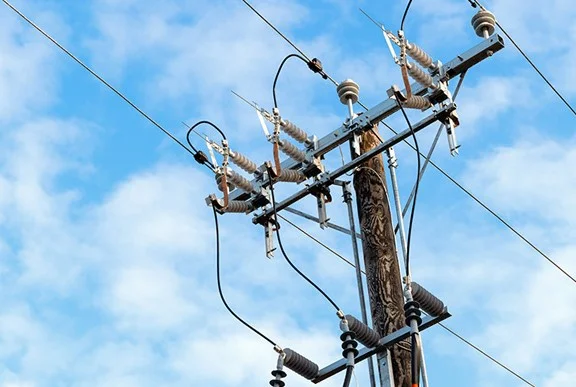
A utility pole carrying electrical wires for distribution seen in Nairobi, Kenya.. PHOTO | Kenya Power
In Summary:
- Electricity prices for Kenyan households will increase by 2.8% in June.
- The rise is attributed to a higher Fuel Energy Charge (FEC) and Foreign Exchange Rate Fluctuation Adjustment (Ferfa).
Kenyan households will see a 2.8% increase in electricity costs this June, according to the Energy and Petroleum Regulatory Authority (EPRA).
This hike affects those in the Domestic Ordinary 2 category, consuming more than 100 kWh monthly, who will now pay Ksh1,028 for 32.9 units of electricity, up from Ksh1,000.
The average household energy consumption in Kenya is 208 kWh per month, placing additional financial strain on many families. EPRA’s latest review highlights an increase in the Fuel Energy Charge (FEC) to Ksh3.59 per unit, up from Ksh3.52 in May.
According to EPRA, “Schedule will be liable to a fuel energy cost charge of plus 359 Kenya cents per kWh for all meter readings to be taken in June, 2024.”
This charge is a pass-through cost collected by Kenya Power and paid to power producers using diesel, which is currently the most expensive source of electricity.
Additionally, the Foreign Exchange Rate Fluctuation Adjustment (Ferfa) has risen to Ksh1.76 per unit, from 97 cents in May.
This adjustment covers foreign currency loan servicing costs for power generation, reflecting higher payments to Independent Power Producers (IPPs) compensated in foreign currencies like US dollars and euros.
The last significant rise in electricity costs was in January 2024, with increases of 17%, 13%, and 12% for Domestic Lifeline, Domestic Ordinary 1, and Domestic Ordinary 2 categories respectively.
These recent hikes particularly affect low-income earners under the Domestic Lifeline Tariff, who consume between 0-30 kWh monthly and constitute 71.3% of the customer base.
Previously, electricity prices had declined for five months due to cheaper hydropower production from sufficient rainfall and a strong shilling, reducing foreign currency power purchase costs.
However, the new price increases are expected to raise the cost of living further.
Despite lower pump prices and reduced electricity costs earlier in the year, the new tariffs will likely drive inflation higher from its current rate of 5.1%.
The economic impact on Kenyan households is significant, with industries anticipated to pass on the higher electricity costs to consumers, contributing to the rising inflation.
